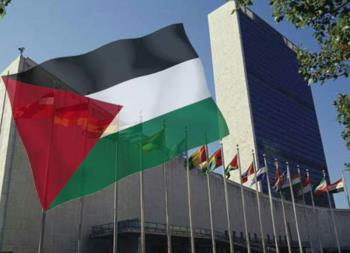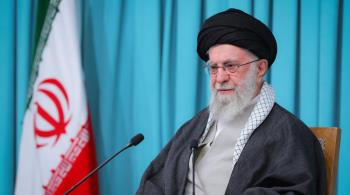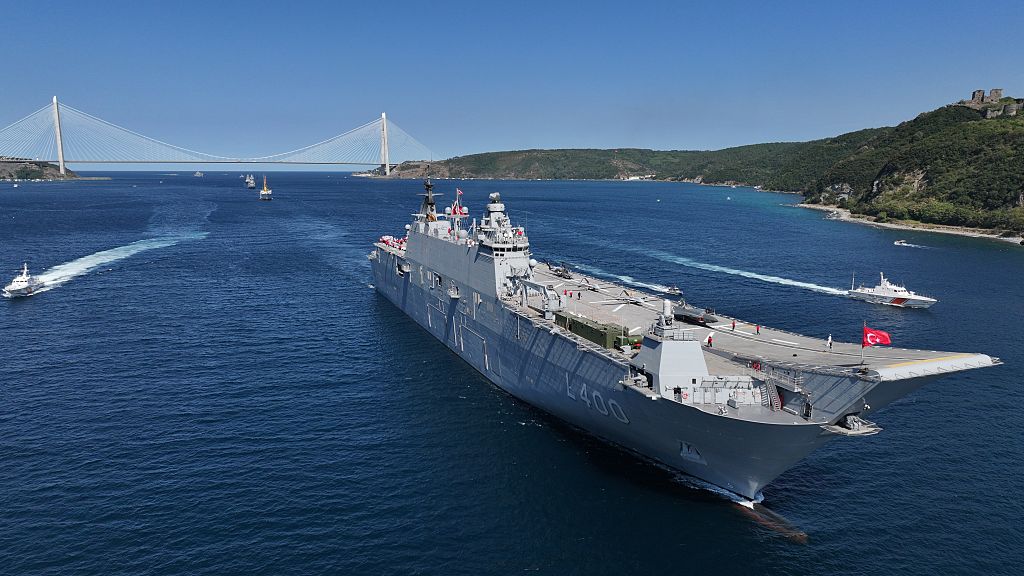Alwaght- The "Sea of Friendship" naval drills between Egypt and Turkey that are set for September 22-26 in the Mediterranean Sea mark a turning point in the relations of these two regional powers.
This is the first official military cooperation between Cairo and Ankara after a decade of adverserial relationship and deep distrust, starting from ouster of Muslim Brotherhood-affiliated President Mohamed Morsi in 2013 through 2023. Now the joint naval and aerial drills are not only a sign of mended ties, but also carry broader geopolitical messages for Eastern Mediterranean and the whole regions of West Asia and North Africa.
The roots of the Turkey-Egypt rift go back to the turbulent events of 2013, when the Egyptian army, led by General Abdel Fattah el-Sisi, ousted President Mohamed Morsi, a member of the Muslim Brotherhood (MB). Morsi, first democratically-elected president of Egypt, was a figure with bonds to Turkey's ruling party. The consequences of this coup were swift: Egypt declared the MB a terrorist organization, and diplomatic relations with Ankara were suspended. This set the stage for a decade of chilly relations, marked by public disagreements, the recall of ambassadors, and conflicting policies in regional hotspots like Libya and the Eastern Mediterranean.
However, new regional conditions and external pressures are now driving them toward cooperation. The Gaza war, American and Israeli pressure on Egypt to accept refugees in the Sinai Peninsula, and Turkey's need to reduce tensions on its borders have created a new foundation for rapprochement between the two nations.
In 2023, both countries agreed to restore relations and reopen their embassies. Since then, the two countries engaged in diplomatic activities and their officials traded visits.
Last summer, el-Sisi visited Ankara, where he was warmly welcomed by President Recep Tayyip Erdogan—an act that seemed inconceivable just a few years earlier.
Reports indicate that Turkey has also taken steps to address one of Egypt's long-standing grievances: the presence of MB members on Turkish soil. While details remain unclear, Ankara is believed to have quietly handed over some members to Egyptian authorities, eliminating a major source of discord between the two governments.
In this context, the "Sea of Friendship" naval exercises symbolize this strategic shift: a sign of Cairo and Ankara's willingness to move from draining rivalries to pragmatic cooperation.
But what were the grounds for these developments, and what consequences could they have for the security architecture of the Eastern Mediterranean? Does this rapprochement mean a definitive end to the disagreements, or is it merely a temporary tactic in the face of current events?
Aspects and messages of the military drills
The military level of the two countries in these drills is reported so high, at a level of two close military allies.
Therefore, given the years of tension and competing interests that have defined Ankara-Cairo relations for much of the past decade, the significance of this event for reviving diplomatic and military cooperation is undeniable.
According to the Turkish Ministry of Defense, these exercises mark the first military cooperation between the two countries in 13 years.
The exercises are expected to be comprehensive, involving a combination of naval maneuvers, air operations, and joint command training. Turkish frigates and patrol boats will operate alongside Egyptian naval vessels, practicing everything from coordinated movements to simulated combat scenarios. The presence of F-16 fighter jets adds an aerial dimension to the drills, signifying the increasing complexity of both nations' military capabilities.
According to Zeki Aktürk, spokesperson for the Turkish Ministry of Defense, Ankara has dispatched an impressive array of naval and air assets to the region, including the frigates TCG Oruçreis and TCG Gediz, fast patrol boats TCG İmbat and TCG Bora, the submarine TCG Gür, and two F-16s.
Egyptian naval units will also participate in the exercises, joining their Turkish counterparts in a series of drills designed to enhance operational coordination and interoperability.
One area where the two countries have found agreement is their stance on the military operations and genocide committed by the Israeli regime in Gaza. Ankara and Cairo have both adopted firm positions against the ongoing conflict and are cooperating to secure a ceasefire. This shared stance has not only aligned their diplomatic efforts but has also provided a platform for joint action in the region.
Thus, they are more than just military drills. Conducted with the aim of "enhancing military relations and regional cooperation," they signal a willingness to move beyond past differences for shared interests.
End of Eastern Mediterranean disputes?
One of the strategic sticking points between Ankara and Cairo in the past which can test how serious they are in their rapprochement is the Eastern Mediterranean. In fact, it remains to see if their inclination for closeness can change the balance of power and diplomacy in Eastern Mediterranean.
The last joint naval exercise, held in 2012, had become a distant memory, with the two nations since then pursuing divergent policies, particularly in Libya and the Eastern Mediterranean.
The Eastern Mediterranean has long been a flashpoint of competing claims and rival alliances. Disputes over maritime boundaries, energy resources, and political influence have created fertile ground for military confrontation among the various influential actors in the region. The resumption of joint exercises is certain to introduce new complexities into an already volatile landscape.
Greek and Cypriot officials, for their part, have observed the Turkey-Egypt rapprochement with a mixture of concern and pragmatism. The annual "MEDUSA" exercises, conducted since 2015 with Greece, will likely continue. However, the addition of Turkey-Egypt cooperation adds a new knot to the region's intricate security architecture.
The timing of their drills is significant, taking place amid persistent instability across the Eastern Mediterranean. For years, Greece, Egypt, and Cyprus have held their annual MEDUSA exercises—typically between Alexandria and Crete—designed to demonstrate cooperation and a united front against Turkey. Now, with joint Turkish-Egyptian maneuvers underway, the regional balance appears to be shifting once again.
Observers view the Cairo-Ankars reconciliation as both a challenge and an opportunity for Athens. On one hand, it complicates the long-standing dynamics of Greco-Turkish competition in the Eastern Mediterranean, particularly over maritime borders and energy exploration. On the other hand, it reflects the broader reality of shifting alliances in the region, as nations recalibrate their foreign policies in response to evolving threats and opportunities.
However, Egypt continues to pursue a policy of closeness with Athens as well, seeking to ensure that its détente with Turkey does not impact its European relationships. Following the announcement of the maneuvers, Egyptian Foreign Minister Badr Abdelatty promptly contacted his counterparts in Athens and Nicosia to provide assurances.
El-Sisi's official visit to Athens on Wednesday, May 7, clearly demonstrated the Egyptian government's strong desire to expand relations with Greece. It served as a proof that any strategic shift in Egypt's relationship with Turkey would not come at the expense of Athens or Nicosia, but is instead driven by other regional developments.
Given these circumstances, some analysts believe it is still too early to declare an end to the disagreements between Cairo and Ankara. Profound differences remain entrenched, particularly regarding Libya and other hot spots where Turkish and Egyptian interests are not always aligned. However, the willingness to set these disputes aside—at least temporarily—signals a pragmatic approach that prioritizes stability and mutual gains over long-standing grievances.
Israel's big worry
One of the main priorities that can yield the biggest results in the Turkish-Egyptian cooperation is the confrontation of the destabilizing and belligerent policies of Israeli regime in Palestine, something rendering the Israeli officials extremely worried about the drills.
On April 20, Egyptian and Chinese forces launched the large-scale joint exercise "The Eagles of Civilization 2025," which lasted for over two weeks. Chinese media described it as "historic" and "the first of its kind." In addition to the Russian-made MiG-29 fighters operated by the Egyptian air Fmforce, combat-effective Chinese J-10C fighter jets also participated in the drills.
For Cairo, these drills coincided with tensions between Cairo, Washington, and Tel Aviv, as Israel increased pressure on the residents of the Gaza Strip for a forced displacement, particularly towards Egypt's Sinai Peninsula—a plan Egypt strongly opposes and has declared a "red line." The Egyptians have even reinforced their military bases, facilities, and forces in the Sinai desert.
A report by Axios suggested that Tel Aviv claims that Egypt has been building military infrastructure in the Sinai Peninsula that allegedly circumvents the security provisions of the 1979 Camp David Accords, and that American pressure on Cairo to halt these activities is necessary.
The Israeli regime points to changes in Egypt's military infrastructure, including extending runways at airbases to accommodate fighter jet deployments, as well as the construction of underground facilities in the Sinai desert. It claims that Cairo will allocate these facilities for missile storage, which would constitute a serious violation of the Camp David Accords and threaten the security balance.
Camp David agreements regulates the military presence on the two sides of the border. Though Tel Aviv through attacking Rafah border crossing and establishing new military corridors in Gaza has violated the terms of the agreement, the Israelis are now accusing Egypt of doing so.
All these developments have led to chilly relations between Egypt and the Washington-Tel Aviv alliance, something explaining Cairo's steps towards Ankara and Beijing, which have further escalated tensions with the Israeli regime.



























